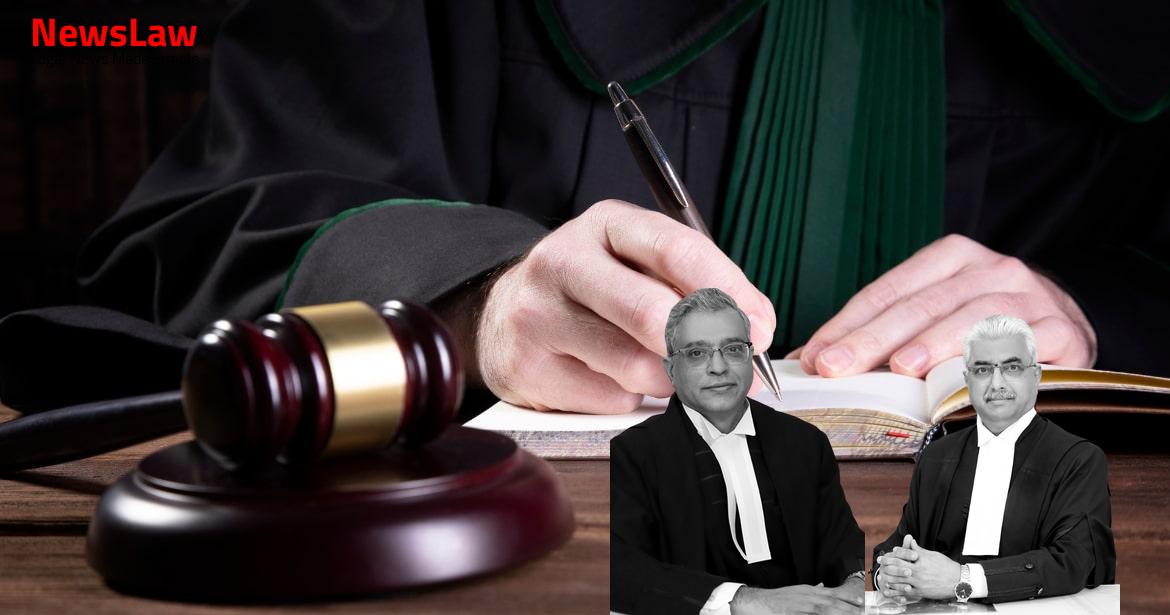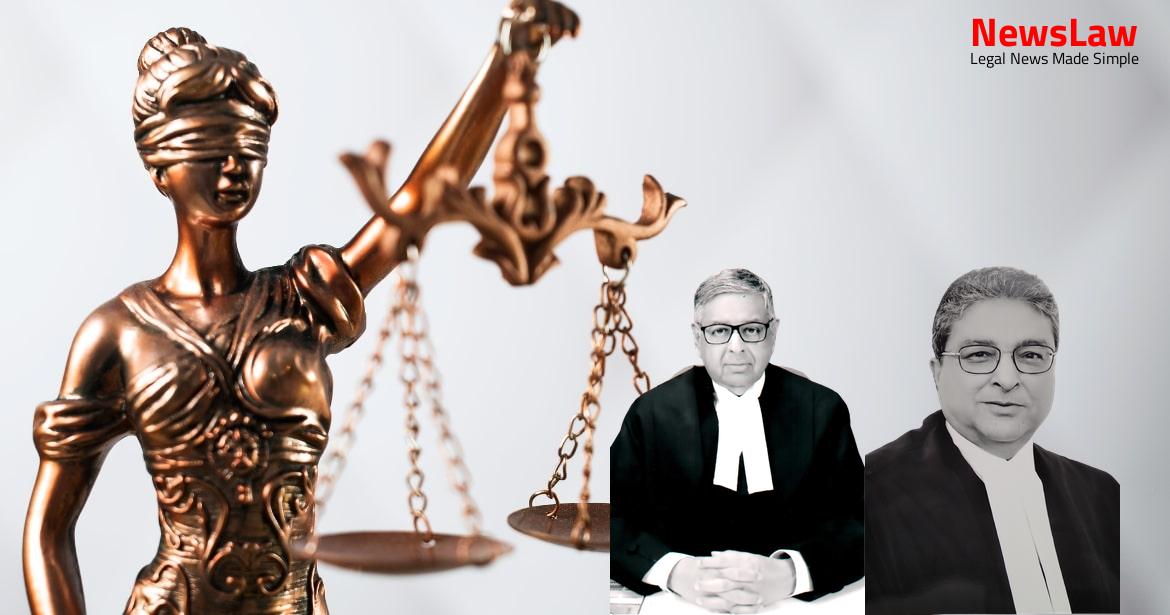In the realm of legal analysis, the court’s crucial role is to balance privacy rights with the pursuit of truth, especially in sensitive cases like paternity disputes. The court’s decision-making process must carefully consider the implications of ordering DNA testing and prioritize the protection of an individual’s privacy and personal autonomy. Let’s delve deeper into the intricate legal considerations surrounding privacy rights in paternity disputes.
Facts
- The judge emphasized that a DNA test is crucial in determining the relation between the parties.
- The judge mentioned that a DNA test is a double-edged weapon that should not be shied away from.
- The plaintiff claiming to be the son of Trilok Chand Gupta and Sona Devi was advised not to avoid the DNA test suggested by the defendants.
Also Read: Insurance Claim Repudiation due to Fire Incident: Court’s Legal Analysis
Issue
- The issue at hand is whether the plaintiff, in a declaratory suit for ownership over coparcenary property, can establish his right without undergoing a DNA test
- The question arises as to whether other material evidence can suffice to prove ownership without DNA testing
- A key consideration is whether the plaintiff can be compelled to undergo a DNA test against his wishes in such a case
Arguments
- The plaintiff opposed the DNA test suggested by the defendants and offered to rely on already adduced evidence.
- The defendants filed an application for a DNA test to establish a biological link between the plaintiff and their parents, which was opposed by the plaintiff as an abuse of process of law.
- The plaintiff presented evidence including a sworn affidavit mentioning him as the son of the defendants’ parents.
- The court opined that the onus is on the plaintiff to prove his status as a coparcener among the defendants by proving his birth in their family.
- The court noted that the defendants’ application for a DNA test was filed at a stage when the plaintiff had already led evidence to prove his case.
Analysis
- The defendants filed an application for subjecting the plaintiff to a DNA test after the exchange of pleadings and the closure of plaintiff’s evidence.
- The plaintiff had already led evidence to prove the relationship between the parties through sworn affidavits, school leaving certificates, and domicile certificates.
- The respondent No.1, one of the siblings, had declared in her affidavit that the plaintiff was raised as a son by her parents, shifting the burden to the party pleading the negative.
- The aggrieved plaintiff has approached the court challenging the High Court’s revisional order.
- DNA being unique to an individual, the court questions the necessity of further evidence in the form of DNA testing at the instance of the defendants.
- The court examines the proportionality of the legitimate aims being pursued and emphasizes the protection of the plaintiff’s privacy and personal autonomy.
- In a declaratory suit where the plaintiff has already adduced evidence and is unwilling to provide additional evidence through DNA testing, the court feels that the plaintiff’s right to privacy should take precedence.
- The trial court dismissed the defendants’ application for a DNA test considering the timing and lack of eminent need.
- Court must carefully examine the consequences of ordering a blood test in cases where the deceased has died intestate and left behind 5 brothers.
- The burden of proof for the plaintiff husband should be higher than the standard of preponderance of probabilities.
- A court declaring the husband not the father without identifying the real father can have ruinous consequences for the child and the mother.
- Refusal to undergo DNA testing may lead to adverse inferences under Section 114 of the Evidence Act.
- The court’s decision should balance the quest for truth with social and cultural implications.
- Presumption of legitimacy of a child born during a valid marriage is a legal principle that should not be easily dismissed.
- DNA tests should only be directed in deserving cases to prevent unjust outcomes.
- The burden of proof in challenging legitimacy is on the party asserting illegitimacy.
- The presumption of legitimacy can only be rebutted by strong preponderance of evidence.
- The court must weigh evidence from both parties to reach a verdict in sensitive cases like paternity disputes.
- A DNA test should only be ordered if there is eminent need and it satisfies the test of proportionality.
- Blood tests impinge on privacy rights and should be avoided if other evidence can establish or dispute the relationship.
- Indian law leans towards legitimacy and frowns upon bastardy, protecting the rights of the child.
- An order for DNA testing should only be given if a strong prima facie case is made out.
- Even sensitive information revealed by DNA tests may not override the legal presumption of legitimacy under Section 112 of the Evidence Act.
- The burden of proof lies on the litigating party to prove their case with evidence.
- The court should not compel a party to prove their case in a manner suggested by the opposing party.
- The respondent cannot force the plaintiff to provide further evidence in support of the defendant’s case.
- The judgment in question is set aside and merits interference.
- The appellant (plaintiff) has presented evidence that adequately establishes their case.
- The success of the appellant’s suit depends on the evidence presented by both sides.
- Forcing the plaintiff to undergo a DNA test would violate their personal liberty and right to privacy.
Decision
- Order passed by the Trial Court on 28.11.2017 is restored.
- The suit is ordered to proceed accordingly.
Case Title: ASHOK KUMAR Vs. SMT. RAJ GUPTA (2021 INSC 587)
Case Number: C.A. No.-006153-006153 / 2021



